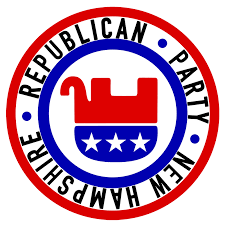New Hampshire Republican candidates, activists and soon-to-be-former legislators are bemoaning their party’s devastating losses in the midterm elections, and they’re putting at least part of the blame on the leadership–or lack thereof– of the NHGOP.
Republicans attending a midterm post-mortem event hosted by NHJournal on Wednesday repeatedly brought up the fact that the GOP state organization–which is underfunded and relies heavily on volunteers– is unable to compete with the Democrats and their paid, full-time staff.
“Every day I was out campaigning, people were asking ‘Where is the state party?'”, one Republican who lost on Tuesday told NHJournal.
Ovide Lamontagne, the GOP nominee for governor in 2012 and an event panelist, told the story of his own daughter– a registered independent–receiving four voter-contact visits from Democratic or liberal organizations that year. And not one contact from the GOP.
The NHGOP state party chair, Wayne MacDonald, responded to his party’s shellacking by blaming “heavy out-of-state influences.”
“We were competitive in many seats while being extremely outspent by candidates and third party groups,” MacDonald said in a statement. “New Hampshire Republicans have two years to build an organization…that will retake the seats we lost last night and more.”
That answer didn’t appear to satisfy Granite State Republicans, many of whom took to social media to express their anger with the party’s performance. Most significant was a Facebook post from NH-01 candidate Eddie Edwards’ campaign consultant, Mike Biundo:
“The NH Republican Party better look within. Until we have a full-time effort that begins to mirror the Democrats here, you are spotting them points and starting at a disadvantage. The RNC ground game here was impressive for its size and was led by people I respect but being outgunned, outmanned and outspent every cycle makes things harder than they need to be. Perhaps less worrying about unity pledges and more focus on building a sustainable NHGOP is in order.”
The reference to “unity pledges” was related to Edwards’ refusal during the primary to sign the standard pledge to endorse the party’s nominee, a refusal the kept Edwards off the stage of a NHGOP-sponsored debate. New Hampshire Republicans may debate that decision by the party, but they appear to be in agreement that having a volunteer state organization going up against a well-funded professional Democratic Party is a mistake that must be addressed.
“This is a lesson we continue to re-learn, again and again. This isn’t the first cycle we’ve been outmatched by the Democrats,” Lamontagne told NHJournal. “This is a persistent problem. We’ve got to have a full-time, professional party organization. If we’re going to compete, we’ve got to have the same tools.”
“This isn’t unilateral disarmament, it’s unilateral non-armament,” he said.
Former GOP state rep John Richardson agrees. “Biundo is right,” he tweeted. “The NHGOP needs a full-time, paid chair, more staff and a year-round ground game. When two NHSenate races are determined by 250 total votes, those are winnable races.”
If everyone agrees on the problem, why hasn’t there been a solution? One word: Money.
“New Hampshire Republicans are cheap,” one longtime activist involved in fundraising told NHJournal.
Multiple sources directly involved in campaigning and fundraising tell NHJournal that Granite State Republicans simply won’t pay to support the party infrastructure. In fact, the party didn’t change its bylaws to even allow for a paid chairman until 2017. Large donors give to individuals and to PACs, but not the state party. And those individuals and PACS run their own, individual races, rather than the coordinated campaigns that a state organization would run.
And then there’s the reliance on out-of-state money that comes in every four years for the #FITN primary. “We’re spoiled,” the fundraiser said. “For a few months every four years we’re the center of the political universe and the money just pours in. It’s easy. But raising money that rest of the time is hard.
So how can the NHGOP solve this problem? “It starts with the governor,” Lamontagne said, who added that now is the time to act, while the midterm fiasco is fresh in Republican minds and before the next campaign season kicks into full swing.
Senate Majority Leader Jeb Bradley was more blunt:
“Governor Sununu had no coattails and didn’t campaign with House and Senate members. He is going to pay a price for that certainly,” Bradley told the Union-Leader.
“He won, but Sununu under-performed; there’s no question about it. We did fine with in-state fundraising but we’re going to have to address the out-of-state interests and get ourselves on the map the way Democrats did and again that starts with our governor.”
Now that they’ve lost the House, the Senate and the Executive Council, will New Hampshire Republicans finally step up and fund a full-time campaign team? Or will they cross their fingers and hope for the best?



